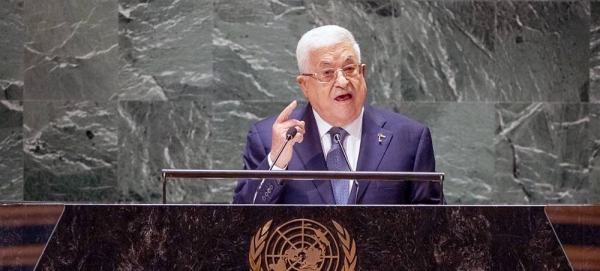
For the 19th year, Iraqis, Arabs and others around the globe differed on defining what happened on April 9, 2003, which marked the fall of Saddam Hussein’s regime and the opening of a new page in the modern history of Iraq.
It was undoubtedly a painful and sad day to see bombs falling on what was known as “Dar Al-Salaam” (home of peace) and feel what the Iraqi people had suffered for many years for a number of reasons. However, after all these years, the discussions and the arguments continue to describe that day differently. Was it liberation from an oppressive, authoritarian regime or an unjust invasion aimed at destroying the country?
For me and the thousands of Iraqis who spent many years abroad and worked to expose the crimes of the Saddam regime, we considered it liberation and an excellent opportunity to build a democratic Iraq that believes in the role of institutions and respects the law.
This division is also reflected in the statements and stances of Iraqi officials and politicians. Iraqi President Barham Saleh, a Kurdish politician who spent long years in exile opposing Saddam, stressed that the significant political transformation achieved after 2003 could not be underestimated while failures need to be acknowledged. “Establishing good governance will not be achieved without restoring the Iraqi people’s confidence in the state as the people are the legitimate source of authority. So the Iraqi people’s interest should be placed over any other interest,” he said.
Prime Minister Mustafa Al-Kadhimi’s opinion aligns with President Saleh’s, as he posted on Twitter that this date was an occasion to be reminded of the need to adopt the approach of reform and justice in the political system in order to achieve the aspirations of the people of Iraq.
Meanwhile, Raghad, the daughter of Saddam, who grew up under the wings of the brutal dictator, speaks freely on social media, delivering inciting speeches to mobilize support for the banned party and glorify the repressive regime. Unlike Alina Fernandez, the daughter of Fidel Castro, who became part of the dissident political movement to defend the Cubans against her own father, Raghad seems to defend and glorify all her father’s atrocities. “We will continue to work relentlessly with all those loyal to Iraq, God willing, until our country is liberated. Then, it will regain the status it deserves,” she said in a voice recording posted on her Twitter account.
Iraqi citizens have the absolute right to be angry at the current situation and its negative aspects, starting with poor or nonexistent public services, through to rampant corruption in the majority of the ministries, and ending with security, political and economic instability.
Who is responsible for what happened to the land of the cradle of civilization? Regardless of the US mistakes and violations in Iraq, the country is being built on a pluralistic system inspired and protected by the constitution and the law to save the people from decades of misery, oppression and injustice.
Having said that, the political class feels that it is above the law and has the right to do what it stood against during the rule of the Baathist regime.
Iraqis need to remember these facts instead of blaming the US and the Western world for invading and destroying their country.
Under Saddam’s dictatorship since 1979, the people’s lives had always been based around wars, society militarization, poverty, sanctions, and fear of the ruler’s oppression.
What happened in Iraq was the repercussions of Saddam’s invasion of Kuwait and the false boasts of his ability and will to strike Israel, which gained him the support of the Arab street due to the Israeli-Palestinian conflict.
The Iraqi people should bear the responsibility for the survival of the corrupt in power as well as the sectarian and ethnic rules that govern the country now.
The Iraqi people should bear the responsibility for the survival of the corrupt in power.
Dalia Al-Aqidi
It was they who cheered and applauded Saddam, giving him legitimacy and strength to oppress his people. It was they who went to the polls and repeatedly elected the same politicians.
The members of the pro-Iran militias who terrorize and kill the people are also Iraqis. It is they who allowed Muqtada Al-Sadr to represent them, turning him from a militia leader to a kingmaker.
What is the use of solving the Iraqi dilemma for ending the confusion between occupation and liberation? Step one is building the new Iraq and paving the way for the young generation to blossom and develop a bright future and stop blaming others for their own mistakes.
More than 2,500 years ago, the Chinese philosopher and politician Confucius said: “A man who has committed a mistake and doesn’t correct it is committing another mistake.” He was right then and is still right today.
Dalia Al-Aqidi is a senior fellow at the Center for Security Policy. Twitter: @DaliaAlAqidi












